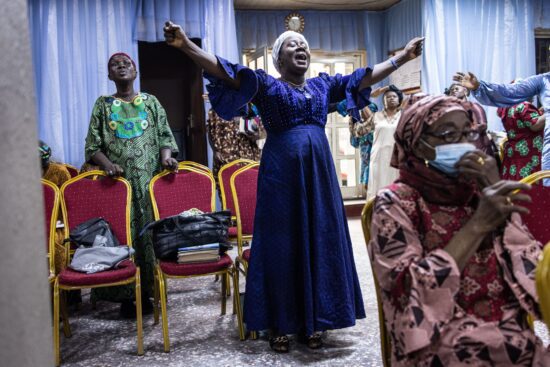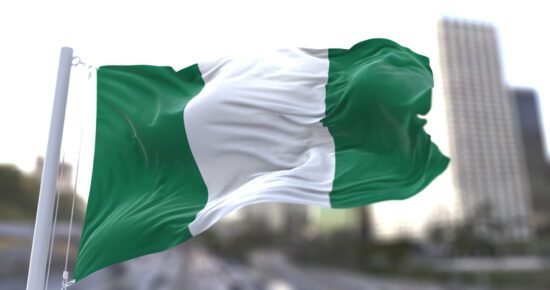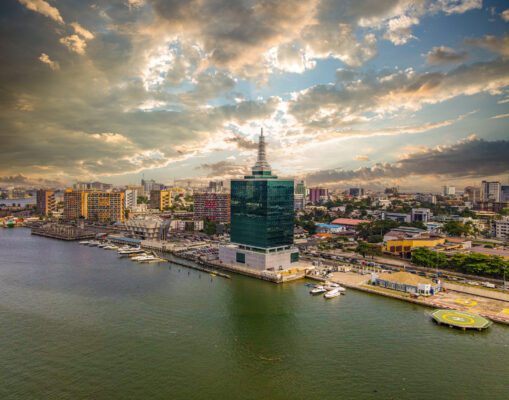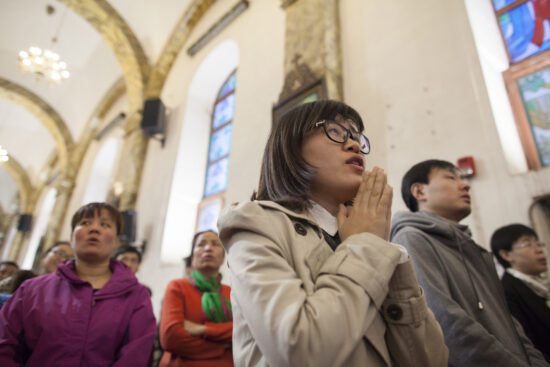The limits of religious liberty are currently being tested around the world, including the U.S. Some are seeking to restrict this freedom and move religious discourse from the public square.
At the same time, as many of us get ready to go to church on a Sunday morning, we don’t have to be afraid that we might be stopped by the police and asked where we’re going. During a worship service, we have never been confronted with the fear that the service might be interrupted by the police and all the worshippers arrested. Most likely, no government official has ever asked us what we believe about God. And, we’ve never had to choose between renouncing our faith in Jesus Christ and watching the torture of our family continue.
Just this year, we have seen the stories of persecution of Christians, Yazidis, and other religious minorities by the so-called Islamic State. But we may not know that members of religious minorities face similar persecution around the world, every day, without grabbing the headlines or catching our attention.
The U.S. State Department’s International Religious Freedom Report (IRF Report), released last week, provides us with an ocassion to stop, pray for those who face this persecution, and consider how we might help. It also provides us an occasion to be thankful for the freedoms we have in the U.S. We should never take these freedoms for granted, and we should be vigilant to fight to protect them.
As Ambassador David Saperstein, the first Jewish Ambassador at Large for International Religious Freedom, said when releasing the report,
There is an absolute and unequivocal need to give voice to the religiously oppressed in every land afraid to speak of what they believe in; who face death and live in fear, who worship in underground churches, mosques or temples, who feel so desperate that they flee their homes to avoid killing and persecution simply because they love God in their own way or question the existence of God.
How is religious freedom defined internationally?
In the U.S., religious freedom is recognized by the First Amendment of the Constitution: “Congress shall make no law respecting an establishment of religion, or prohibiting the free exercise thereof; or abridging the freedom of speech, or of the press; or the right of the people peaceably to assemble, and to petition the Government for a redress of grievances.”
In international law, the foundational definition of religious freedom is found in Article 18 of the Universal Declaration of Human Rights, adopted by the newly formed United Nations in 1948. Article 18 states, “Everyone has the right to freedom of thought, conscience and religion; this right includes freedom to change his religion or belief, and freedom, either alone or in community with others and in public or private, to manifest his religion or belief in teaching, practice, worship and observance.”
Robert P. George, Chairman of the U.S. Commission on International Religious Freedom, defined relgious freedom this way:
Religious freedom means the right of all human beings to think as they please, believe or not believe as their conscience leads, and live out their beliefs openly, peacefully, and without fear. When it comes to the peaceful exercise of religion or belief, no government, group, or individual has the right to compel others to act against their conscience or restrain them from answering its call.
What does the IRF Report tell us?
The IRF Report provides detailed country-by-country information about the status of religious freedom protections. The report tells stories, explains the legal frameworks in each country, and highlights what the U.S. government is doing to work for religious liberty.
The IRF Report also gives us a high-level picture of the status of religious liberty internationally. Here are the big-picture trends for religious liberty in 2014, according to the report:
- The rise of abuse by non-state actors. Governments themselves continue to oppress religious minorities across the world. But we have also seen an increase in the failure of governments to protect religious minorities from political parties, social organizations, and terrorist organizations.
- The rise of anti-Semitism in Europe. In 2014, anti-Semitism surged, as many protests against Israel “crossed the line into anti-Semitism.” Chillingly, the IRF Report notes that these protests have “left many pondering the viability of Jewish communities” in Europe, including France and Germany.
- Failure of governments to protect religious minorities from societal tensions and discrimination. In countries across the world, governments are failing at their first task: to protect the rights of their citizens. For instance in Nigeria, the government failed at all levels to investigate, prosecute and punish of violence and discrimination against religious minorities.
Why does the report matter?
The IRF Report gives us information and facts that we can count on and use for advocacy or policy. Christians can use this report as a guide to direct our prayers for the persecuted church.
But the IRF Report also has consequences. Under the International Religious Freedom Act of 1998, the President must review the report and identify “countries of particular concern” and then take action against these countries of particular concern. This Presidential action could range from a public condemnation to a reduction in diplomatic relations to the reduction or elimiation of nonhumanitarian foriegn aid.
In July 2014, the President designated 9 countries of particular concern:
- Burma
- China
- Eritrea
- Iran
- North Korea
- Saudi Arabia
- Sudan
- Turkmenistan
- Ukbekistan
Stop for a minute, and read back over the list. If you don’t know where some of these countries are, open up Google Maps and find them. Take a minute to pray for the people that live there and may have no other option for a place to call home.
What will happen next?
Under the International Religious Freedom Act, the President is required to designate countries of particular concern and take action, working to improve the lives of religious minorities living in those countries.
Unfortunately, the act does not set a deadline for the President to update the list of countries of particular concern or to take this action. In fact, in the last 16 years since the act was passed, the President has made new designations only 10 times.
So what happens next? We will give the President the opportunity to designate new countries of particular concern, and if necessary, the ERLC will call upon the Administration to act if it fails to do so.
The U.S. Commission on International Religious Freedom, an independent, nonpartisan commission created by the International Religious Freedom Act, has issued its 2015 report and recommended that eight new countries be added to the list of countries of particular concern: Central African Republic, Egypt, Iraq, Nigeria, Pakistan, Syria, Tajikistan, and Vietnam.
In the meantime, here are two practical ways that you can respond:
- Pray for the religious minorities of one new country every week. Read the country’s section in the report and use the information there to respond.
- Pay attention to whether the State Department designates new countries of particular concern, and join with ERLC in asking the State Department to act if they fail to do so.
Let those of us in the U.S. never take our freedoms for granted. At the same time, let us remember that much of the world’s population has never enjoyed these freedoms, and let us consider how we might stand with our brothers and sisters and fellow image-bearers.










